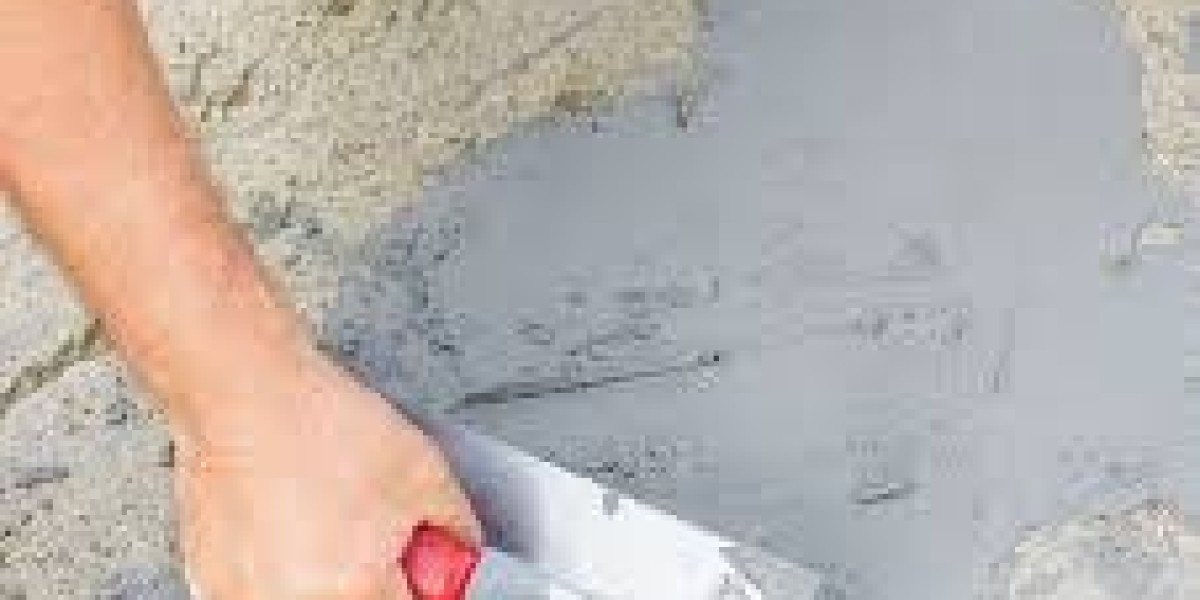Concrete floors are a popular choice in commercial and industrial settings due to their durability, cost-effectiveness, and ease of maintenance. However, to withstand the heavy foot traffic, machinery, and potential spills typical of warehouses, retail stores, and industrial spaces, these concrete floors need extra protection.
This is where a high-quality commercial concrete floor sealer comes in. A good sealer not only enhances durability and resistance to damage but also improves appearance and reduces maintenance needs.
In this guide, we’ll walk through the best types of commercial concrete floor sealers for warehouses, retail environments, and industrial spaces. We’ll explore key factors to consider when choosing a sealer, and highlight some of the top products for each application.
Why Use a Concrete Floor Sealer in Commercial Spaces?
Concrete floors in commercial settings are subjected to constant wear and tear. Unsealed floors are vulnerable to damage from chemicals, oils, heavy machinery, and foot traffic. A commercial-grade concrete floor sealer offers numerous benefits:
Protection Against Stains and Chemicals: Many sealers create a barrier that repels oils, water, and chemicals, preventing stains and surface damage.
Enhanced Durability: Sealers make floors more resistant to scratches, abrasions, and impact from heavy machinery.
Easier Maintenance: Sealed floors are easier to clean, saving time and labor costs.
Improved Appearance: Sealers can add gloss, depth, or color to concrete floors, enhancing the aesthetic appeal of a space.
Types of Commercial Concrete Floor Sealers
When selecting a concrete floor sealer for commercial or industrial settings, it’s essential to choose one suited for the level of traffic and type of exposure the floor will face. Here are some of the most common types:
Epoxy Sealers
Best For: Warehouses, factories, and garages with heavy equipment and machinery.
Description: Epoxy sealers form a thick, durable layer over the concrete that provides excellent protection against chemicals, abrasions, and impact. They’re ideal for areas with high traffic and harsh conditions. Epoxy sealers also offer a high-gloss finish that can make the space look polished and professional.
Pros: Extremely durable, resistant to chemicals and heavy impacts, available in various colors.
Cons: More challenging to apply, requires a dry surface, and may need multiple coats.
Polyurethane Sealers
Best For: Retail spaces, warehouses, and areas requiring a decorative finish.
Description: Polyurethane sealers are known for their UV resistance, making them suitable for areas with sunlight exposure. They’re highly durable, offering protection against abrasions, chemicals, and foot traffic. Polyurethane sealers are available in both glossy and matte finishes, providing aesthetic flexibility.
Pros: UV resistant, durable, available in multiple finishes, flexible yet strong.
Cons: Requires careful application, may yellow over time without UV stabilizers, can be more expensive than other options.
Acrylic Sealers
Best For: Retail stores and areas with light to medium traffic.
Description: Acrylic sealers are fast-drying and easy to apply, forming a protective layer over the concrete. They come in both solvent-based and water-based forms. Solvent-based acrylics offer a higher gloss finish, while water-based versions are more eco-friendly. Although not as durable as epoxy or polyurethane, acrylic sealers are cost-effective and can enhance the appearance of concrete floors.
Pros: Easy to apply, enhances appearance, affordable, fast-drying.
Cons: Less durable than epoxy or polyurethane, may require reapplication every 1-3 years.
Penetrating Sealers
Best For: Industrial areas with moisture or freeze-thaw cycles, warehouses with outdoor exposure.
Description: Penetrating sealers, including silicate, silane, and siloxane, seep into the concrete’s pores and chemically bond within, creating a breathable barrier that protects against moisture, stains, and chemicals. They don’t alter the appearance of the floor, making them ideal for areas that don’t require a high-gloss finish.
Pros: Long-lasting, protects against moisture, maintains a natural look, ideal for outdoor or damp environments.
Cons: Limited resistance to abrasions, may require multiple applications for optimal protection.
Choosing the Right Commercial Concrete Sealer for Your Space
When selecting a concrete sealer for a commercial environment, consider the following:
Traffic Levels: High-traffic areas like warehouses benefit from epoxy or polyurethane sealers for their strength. Retail spaces with moderate foot traffic might do well with acrylic sealers.
Exposure to Chemicals and Moisture: Industrial settings prone to chemical exposure or moisture issues should consider epoxy or penetrating sealers.
Aesthetic Preferences: For spaces where appearance matters, such as retail stores, polyurethane and acrylic sealers offer more finish options, including matte, satin, and high-gloss.
Maintenance and Reapplication Needs: Penetrating sealers are low-maintenance but don’t provide a high-gloss finish. Acrylic sealers may need more frequent reapplication but are easy to apply.
Top Recommended Commercial Concrete Floor Sealers
Here are a few highly-rated sealers suitable for commercial and industrial use:
Rust-Oleum EpoxyShield: Known for its durability, this epoxy sealer is popular in warehouses and garages for its tough, high-gloss finish that resists chemicals and heavy impact.
Armor SX5000 WB Penetrating Sealer: A water-based silane/siloxane sealer that provides deep penetration and protection against water, salt, and deicing chemicals. Ideal for industrial spaces with exposure to moisture.
EnduraSeal Acrylic Sealer: Perfect for retail floors, this acrylic sealer enhances color and provides a glossy finish while being easy to apply and cost-effective.
H&C Shield-Crete Epoxy Concrete Sealer: This epoxy sealer is durable and ideal for areas that see heavy machinery and equipment, offering excellent abrasion and chemical resistance.
Foundation Armor AR350 Wet Look Acrylic Sealer: Provides a glossy "wet look" that’s ideal for retail floors and showrooms, enhancing color while protecting against wear and tear.
Application Tips for Best Results
To ensure the best results from your commercial concrete sealer, follow these steps:
Prepare the Surface: Clean the concrete thoroughly, removing any oil, dirt, or previous coatings.
Allow Proper Drying Time: Ensure the surface is completely dry before applying the sealer, especially if using an epoxy or polyurethane sealer.
Apply Evenly: Use a roller, sprayer, or brush to apply the sealer in thin, even coats, avoiding pooling or puddling.
Follow Manufacturer’s Curing Instructions: Allow adequate curing time based on the manufacturer’s recommendations. Most sealers require 24-48 hours before resuming heavy traffic.
Reapply as Needed: Keep an eye on the sealer’s effectiveness, especially in high-traffic areas, and reapply as necessary.
Choosing the right concrete floor sealer for your commercial space depends on your specific needs, including traffic levels, exposure to chemicals or moisture, and aesthetic preferences.
Epoxy, polyurethane, acrylic, and penetrating sealers all offer distinct benefits, with options suited for various commercial applications. By investing in a high-quality sealer, you can protect your floors, improve safety, and extend the life of your concrete surfaces.









